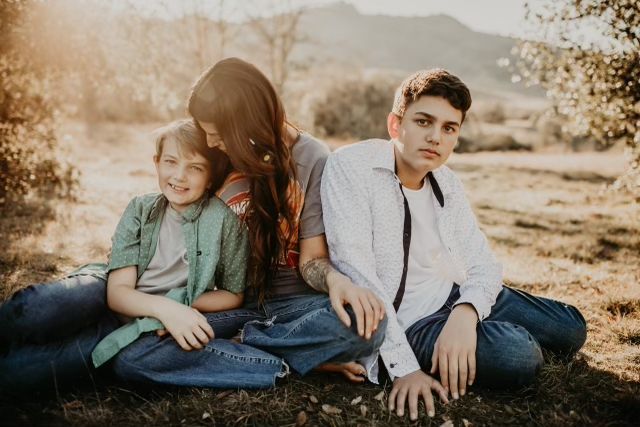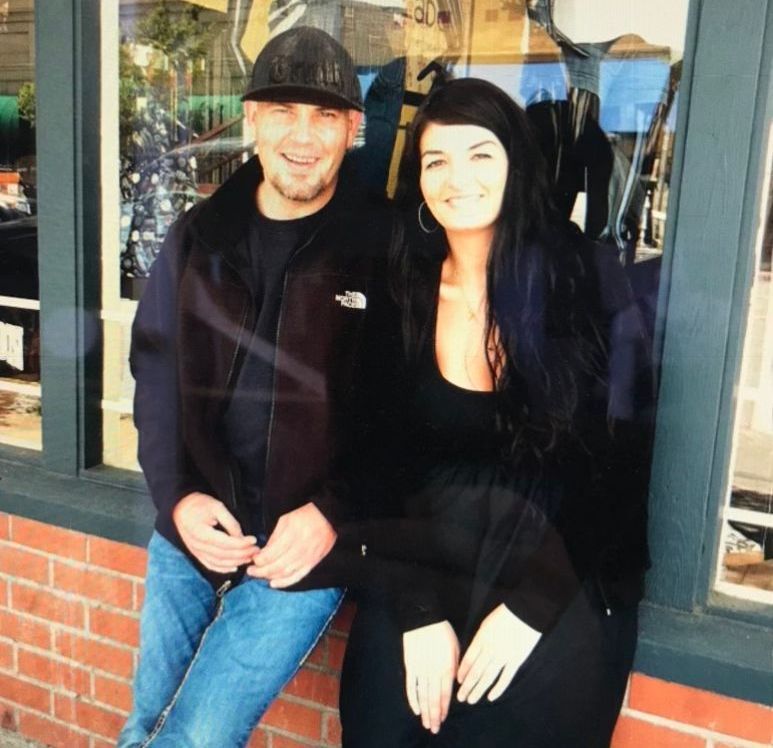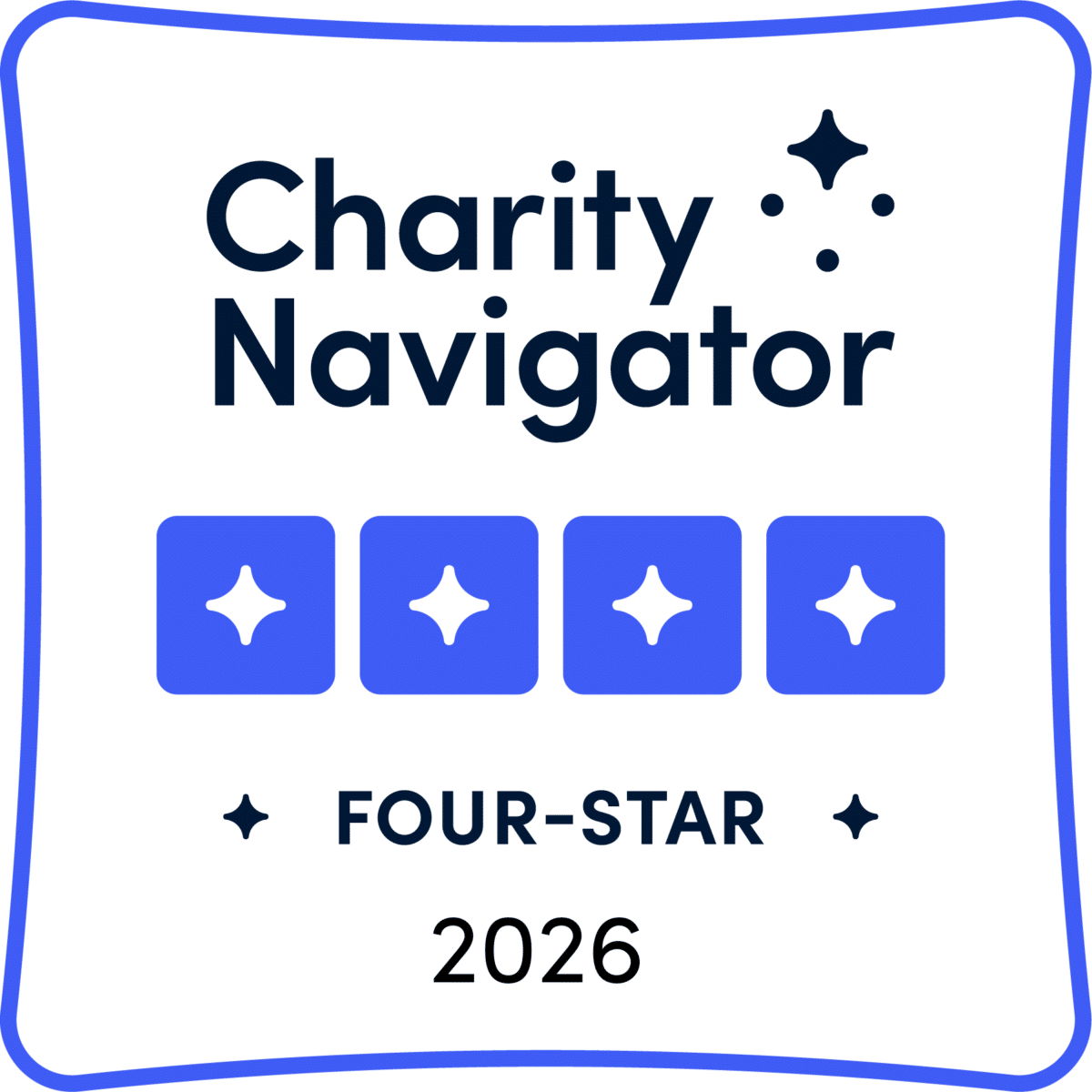Stephanie Gregg Shares the Hardships of Being a Single Parent of Two While Their Father Serves 15-years for Cannabis
Last Prisoner Project's Stephanie Shepard and Stephanie Gregg discuss her experiences as a single co-parent of two children, Presley, 11, and Patron, 14, whose father, Jason, has been in prison for cannabis for nine years. Jason was indicted by the federal government and sentenced to a 15-year sentence for cannabis distribution. Stephanie shares her experience of trying to live a normal life while her husband serves his sentence. Stephanie discusses her children, community involvement, and the challenges she and Jason have faced during his time in prison. Last Prisoner Project emphasizes the need for reform of the prison system for drug offenders.
LPP:
Tell me a little bit about yourself, Stephanie. How did you come to be speaking with me today?
SG:
Jason was my childhood crush. I moved back to Mendocino County from Southern California to be with him. We had our 2 sons, Patron and Presley, within the next four years. Patron is going to high school, and Presley to middle school.
LPP:
How old was Presley when the feds indicted Jason for cannabis charges?
SG:
Presley was three weeks old.
LPP:
You live in the Emerald Triangle, the heart of California cannabis. Did you think, nine years later, you would still be experiencing the collateral consequences of a cannabis charge?
SG:
It's what I've grown up seeing here. It's what I know. It's normal here. Different from the rest of the world. I had never seen anyone get more than like five years. Very few people got long sentences. I really thought he would get out. I didn't think he would do as much time as he has, but they did give him 15 years in federal prison.
LPP:
As a new wife and mother of two young boys, what did Jason's incarceration do to your relationship? As a couple and as a family?
SG:
Sadly, the system is not set up to keep families together. Jason is still one of my best friends, but after the first couple of years, we had our ups and downs and eventually ended up separating. It's already such a lonely road, that when you put that pressure on someone else, and you're trying to make a relationship work, we realized that we got along so much better as friends. Even if Jason didn't understand what it was like for me out here, I understood what it was like for him in there, so when we come together as friends and support each other, it’s healthy for the kids because they feel when we’re strong, and friends and he's involved. They're solid. We still talk every day, and he's a really good co-parent. He still helps with the boys. Last night, I had to take the kids back-to-school shopping, and teenagers can be tough sometimes. And so I had to get Jason on the phone with his son, and he just gave them the “respect mom” talk, and “she does a lot for you” talk, so he's still very much a part of their lives, as much as he can under the circumstances.
LPP:
How important is that continued connection for both Jason and your sons?
SG:
It’s very important! It keeps Jason grounded. There is not a lot in the way of mental health services available in prison. There were times when he would have benefited from some assistance, but he had to get through it on his own. He’s great today, but the kids have surely been his anchor. The boys have a lightness about them that neither Jason nor I had as a kid. I've done a lot of work to make sure that they don't carry this trauma.
LPP:
What kind of father was Jason before being taken away?
SG:
Jason was a super hands-on dad. Jason was that guy that changed diapers and did the grocery shopping, and he loved it. We contributed a lot to our community. We were super involved. He was at every school function. We weren't just out living some crazy life. That's one thing we had in common. Neither of us had the easiest childhood, and that's what we both really wanted was a family of our own. He was a really good dad, and he is today as well, the best that he can be.
LPP: When you found yourself a single mother, having to take care of your children, did you have a lot of support?
SG:
I don't. This isn't anything negative to the community or to family, I just don't think people know what to do. There's actually a lot of judgment. I did have love and support, but not where I needed it. People don't know what to do. But I'm also a very prideful person that made it always look like I was good, so I think that probably put a wall up from anyone who may have tried to support me differently. Some people will say straight to your face, “Well, there are consequences.” When people can be so harsh, you put up those walls. So to answer your question, yes and no. Some wonderful people reached out at first, but the years continue to go by and they disappear. I suffered silently. I would not know what I was made of today if I hadn’t gone through that. And my relationship with God is everything.
LPP:
Becoming a single mother almost instantly, you not only suffered emotionally but also financially. What were the hardest of times that you experienced?
SG:
There were times I could barely afford really important things that were necessary. We were just in survival mode. It just felt like it was us against the world. I saw what government assistance did to my mom, so I didn't want to utilize the government. I didn't get on any kind of welfare, or any of the things that I probably should have put my pride down at times and accepted it.
But I made it. It forced me to figure it out. It’s very difficult for families who lose their provider.
Strangely enough, It's not the people that you're closest with that try to help you. It's not the people you’ve helped make money. It's not the people that you helped with their bills. Jason was very generous. He really believed that when you let money go, it comes back to you. So it's funny. It's not the people you think that will be there, but some wonderful people do come out of the woodwork. LPP gifted me a Family Support Grant, which paid for half of the kids' school tuition for that year because I've put them in private school. I want them to have every opportunity that Jason and I didn't. We were really grateful for that. People think prison is free, and it's not free. That's why I put money on his books every single month, no matter what, no matter what my month looks like. I was lucky to have some childhood friends that just loved me through all the stages. But for Jason, he didn’t have that support. I feel like he got treated like he’d died. This is one of the reasons I'm so protective when it comes to him, he deserves better.
LPP:
How have you cared for yourself during such a trying time? Has Jason shared with you how he gets through his days?
SG:
I had an amazing priest, Father Damien, up at the monastery. I would go up there and just cry, and I would go talk to him about everything that I was going through. He was like a dad to me. Jason works out, and he loves the Constituent Newsletters that he gets. All of that means a lot.
LPP:
If you could send President Biden a message, what would you tell him? What change would you like to see?
SG:
First, free Jason Gregg! He has served his time. Let him out so he can experience what's left of his sons' childhoods, they need him. His son's going into high school, his youngest is going into middle school. He's missed all of it. It's time.
As for change, starting with the freeing of every person incarcerated for cannabis. There are also not many educational opportunities or adequate mental health support systems available. Things that can assist in rehabilitating someone are not a priority. Jason will have a lot of work to do when he gets out just to try to get re-established. He has taken every program that he has been offered, and I’m proud of him for that. He's such an amazing human that he doesn't put any negativity on us. He's always positive in the way he talks to the kids, and he asks about them, their day, their sports, it's never about himself. Jason's the strongest person I've ever met. I just have so much respect for him.
LPP:
If you can give our readers one final glimpse into who Jason is, how would you describe him?
SG:
Jason is just a good-hearted country boy from Willits who loves his sons, his community, and his family.








